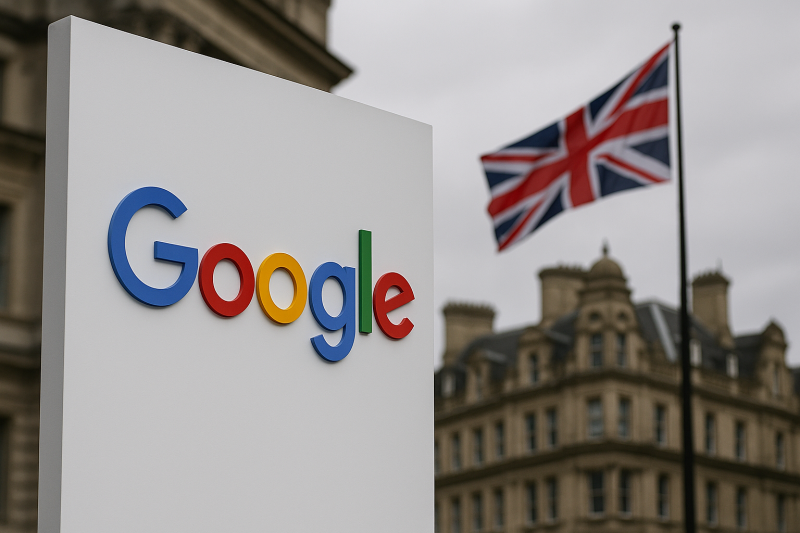Alphabet Inc.’s Google has become the first company in the UK to be formally designated with “strategic market status” (SMS) by the Competition and Markets Authority (CMA).
The new designation gives the regulator powers to monitor and control how Google operates its online search and advertising businesses, marking a major shift in how Big Tech is governed in Britain.
The decision, announced this week, follows the implementation of tougher competition laws aimed at ensuring fair play in digital markets.
As per a report by Bloomberg, under the new framework, the companies deemed to have “substantial and entrenched market power” can be required to follow legally binding rules that prevent them from abusing their dominance.
For Google, this means stricter scrutiny over how it displays search results, sells advertising, and integrates AI tools into its services.
CMA flags Google’s entrenched dominance in search and advertising
The CMA said Google’s market power in general search and search advertising is significant enough to warrant the designation.
The regulator expressed concerns over the fairness of Google’s search results, the high costs advertisers face on its platforms, and the growing influence of AI-generated search responses on competition.
The new status does not mean Google has acted anti-competitively, but it gives the CMA the authority to intervene if necessary.
This could include imposing fines, enforcing behavioural remedies, or mandating changes in how Google structures its services in the UK.
The aim, according to the CMA, is to make digital markets more competitive and transparent, while giving smaller businesses a fair chance to thrive online.
The move reflects a growing global consensus that dominant tech platforms require closer oversight to prevent them from distorting markets.
By designating Google under the new rules, the CMA has positioned itself at the forefront of regulating the digital economy in a post-Brexit environment.
Google warns regulations could slow UK innovation
Following the announcement, Google said it would continue to engage constructively with the CMA but warned that some proposed restrictions could harm innovation.
According to Bloomberg, Oliver Bethell, the company’s senior director for competition, said that “costly restrictions” and “unduly onerous regulations” could delay product launches and discourage investment in the UK’s tech ecosystem.
Despite these concerns, the CMA insists that the framework is designed to promote innovation, not stifle it.
The authority emphasised that its new powers are aimed at making sure competition remains fair and open, especially as AI begins to play a bigger role in shaping how people search for information and how businesses advertise online.
UK joins EU in strengthening digital market oversight
The UK’s move follows a broader European crackdown on tech giants.
Last month, the European Union fined Google nearly €3 billion ($3.5 billion) for favouring its own advertising technology services, ordering the company to change its business practices.
The fine, one of the largest imposed by the EU, prompted criticism from former US President Donald Trump, who called the move “very unfair” and threatened retaliatory tariffs.
The CMA’s decision comes under the UK’s new Digital Markets, Competition and Consumers Act, which took effect earlier this year.
The law mirrors aspects of the EU’s Digital Markets Act, giving regulators powers to act pre-emptively rather than reactively against anti-competitive behaviour.
While the designation itself does not imply wrongdoing, it opens the door for greater accountability and ensures companies like Google are held to higher standards of transparency and fairness.
What the designation means for the UK’s digital future
As the first company to fall under the new regime, Google will be closely watched to see how it complies with upcoming regulatory requirements.
The CMA can now impose conduct requirements covering how Google treats business users, handles data, and manages its advertising tools.
If the company fails to comply, it could face substantial fines or other enforcement actions.
The UK’s approach reflects a growing determination to set its own standards in regulating digital markets, independent of Brussels.
For Google, the designation represents both a challenge and an opportunity, a test of how global tech leaders can adapt to stricter rules while continuing to innovate within a fairer, more transparent framework.
The post Google designated ‘strategic market status’ in UK by CMA: what it means appeared first on Invezz


